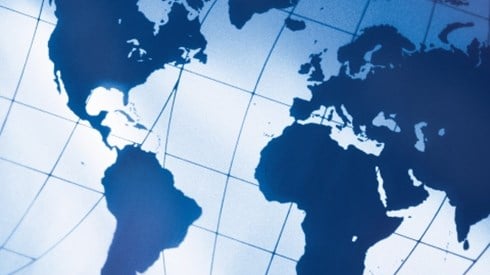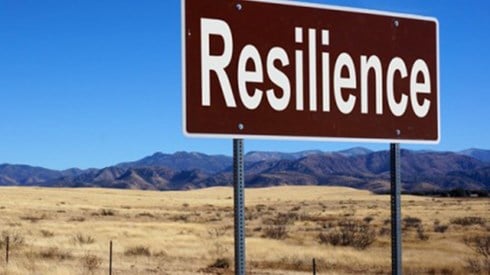Inflation, Climate Risks Top 2023 World Economic Forum Report

January 16, 2023

While the cost-of-living crisis is seen as the greatest risk over the next 2 years, environmental and climate risks dominate the list of top risk concerns over the next decade, according to The Global Risks Report 2023 from the World Economic Forum (WEF).
This year's 18th edition of the WEF report was created in partnership with Marsh McLennan and Zurich Insurance Group. The January 11, 2023, report is based on the Global Risk Perception Survey—a survey of more than 1,200 experts from academia, business, government, the international community, and civil society—as well as the World Economic Forum's Executive Opinion Survey of more than 12,000 business leaders in 121 economies and the views of approximately 100 other experts.
"The economic aftereffects of COVID-19 and the war in Ukraine have ushered in skyrocketing inflation, a rapid normalization of monetary policies, and started a low-growth, low-investment era," the WEF report says. "Governments and central banks could face stubborn inflationary pressures over the next 2 years, not least given the potential for a prolonged war in Ukraine, continued bottlenecks from a lingering pandemic, and economic warfare spurring supply chain decoupling."
Continued supply-driven inflation could result in economic stagflation, which could have severe socioeconomic consequences, the report says.
The report's list of the top 10 risks over both the next 2 years and the next 10 years includes 9 risks.
The top 10 risks over the next 2 years identified in this year's WEF report include the following.
- Cost-of-living crisis
- Natural disasters and extreme weather events
- Geoeconomic confrontation
- Failure to mitigate climate change
- Erosion of social cohesion and societal polarization
- Large-scale environmental damage incidents
- Failure of climate change adaptation
- Widespread cyber crime and cyber insecurity
- Natural resource crises
- Large-scale involuntary migration
While many of the same risks appeared in the list of the top 10 risks over the next 10 years, some occupied different spots in the order.
- Failure to mitigate climate change
- Failure of climate change adaptation
- Natural disasters and extreme weather events
- Biodiversity loss and ecosystem collapse
- Large-scale involuntary migration
- Natural resource crises
- Erosion of social cohesion and societal polarization
- Widespread cyber crime and cyber insecurity
- Geoeconomic confrontation
- Large-scale environmental damage incidents
The WEF reports that driven by state aid, military expenditures, and private investment, research and development into emerging technologies will continue rapidly over the next decade, producing advances in artificial intelligence, quantum computing and biotechnology, and other technologies. For economies that can afford them, those technologies might help in efforts to mitigate top risks, the World Economic Forum says.
"However, the rapid development and deployment of new technologies, which often comes with limited protocols governing their use, poses its own set of risks," the report says. "The ever-increasing intertwining of technologies with the critical functioning of societies is exposing populations to direct domestic threats, including those that seek to shatter societal functioning. Alongside a rise in cyber crime, attempts to disrupt critical technology-enabled resources and services will become more common, with attacks anticipated against agriculture and water, financial systems, public security, transport, energy and domestic, space-based and undersea communication infrastructure."
And those technology risks won't be the sole province of rogue actors, the WEF report suggests. "Sophisticated analysis of larger data sets will enable the misuse of personal information through legitimate legal mechanisms, weakening individual digital sovereignty and the right to privacy, even in well-regulated, democratic regimes," the report says.
The WEF report cautions that economic warfare "is becoming the norm," with governments using economic policies both defensively to build self-sufficiency and sovereignty from rivals, and offensively to constrain the rise of others.
"As geopolitics trumps economics, a longer-term rise in inefficient production and rising prices becomes more likely," the report says. "Geographic hotspots that are critical to the effective functioning of the global financial and economic system, in particular in the Asia-Pacific, also pose a growing concern."
Noting that climate and environmental risks factor prominently in perceptions of the top risks of the next decade, the WEF report adds that those are the risks for which we seem least prepared. The report cites the divergence between what is scientifically necessary to reach net zero greenhouse gas emission targets and what is politically feasible.
"Growing demands on public- and private-sector resources from other crises will reduce the speed and scale of mitigation efforts over the next 2 years, alongside insufficient progress towards the adaptation support required for those communities and countries increasingly affected by the impacts of climate change," the report says.
The WEF report also cites the prevalence of interconnected risks and the growing potential for "polycrises."
"Concurrent shocks, deeply interconnected risks, and eroding resilience are giving rise to the risk of polycrises—where disparate crises interact such that the overall impact far exceeds the sum of each part," the report says. The erosion of political cooperation around the world could contribute to the risk landscape in coming years, the WEF report says, including through a possible polycrisis of interrelated environmental, geopolitical, and socioeconomic risks related to the supply of and demand for natural resources.
The report suggests that exercises aimed at identifying possible polycrises can help anticipate potential connections and direct preparedness steps aimed at minimizing the scale and scope of polycrises before they occur.
In general, "there is a window to shape a more secure future through more effective preparedness," the WEF report suggests. Addressing the erosion of trust in multilateral processes will enhance the ability to address emerging cross-border risks as well as well-established perils.
"In addition, leveraging the interconnectivity between global risks can broaden the impact of risk mitigation activities—shoring up resilience in one area can have a multiplier effect on overall preparedness for other related risks," the World Economic Forum report says. "As a deteriorating economic outlook brings tougher trade-offs for governments facing competing social, environmental, and security concerns, investment in resilience must focus on solutions that address multiple risks, such as funding of adaptation measures that come with climate mitigation co-benefits, or investment in areas that strengthen human capital and development."
January 16, 2023





